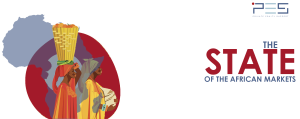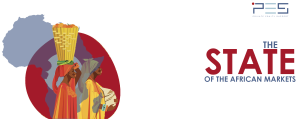
The African market, a diverse and rapidly evolving economic landscape, presents a myriad of opportunities and challenges. With its abundant resources, growing population, and increasing consumer demand, Africa has become an attractive destination for businesses and investors seeking new frontiers. In this article, we delve into the current state of the African market, providing valuable insights and highlighting key trends that shape its trajectory.
Economic Growth and Investment:
Africa has witnessed steady economic growth in recent years, driven by sectors such as agriculture, manufacturing, and services. Foreign direct investment (FDI) has also been on the rise, drawn by sectors such as telecommunications, infrastructure development, and renewable energy. This influx of investment signifies the growing confidence in Africa’s potential for sustainable growth.
Urbanization and Consumer Market:
Urbanization is transforming African cities into bustling hubs of economic activity. The rise of a middle class and increasing purchasing power has fueled a surge in consumer demand across various sectors, including retail, FMCG, and e-commerce. African consumers are becoming more discerning, seeking quality products and services that align with their aspirations and values.
Digital Transformation and Technology Adoption:
Africa is experiencing a digital revolution, driven by the widespread adoption of mobile technology and internet connectivity. This digital transformation is fostering innovation, entrepreneurship, and financial inclusion. Fintech, e-commerce, and telecommunication sectors are thriving, leveraging technology to bridge gaps and tap into previously underserved markets.
Infrastructure Development:
Efforts are underway to improve Africa’s infrastructure, including transportation networks, energy systems, and telecommunications. The African Union’s Agenda 2063 and the Continental Free Trade Area (AfCFTA) initiative aim to enhance connectivity, promote intra-African trade, and foster economic integration. Infrastructure development remains a critical enabler for sustained economic growth and regional integration.
Sustainable Development and Renewable Energy:
Africa is embracing sustainable development and renewable energy as key drivers of economic and environmental sustainability. Governments and private sector stakeholders are investing in renewable energy projects, such as solar and wind, to address energy deficits and reduce reliance on fossil fuels. This shift towards clean energy presents opportunities for investment, innovation, and job creation.
Regional Integration and Trade Opportunities:
The AfCFTA, launched in 2021, holds great promise for fostering trade and economic cooperation among African nations. By creating a single market of 1.3 billion people and harmonizing trade regulations, theAfCFTA aims to unlock the continent’s vast potential, promote industrialization, and attract foreign investment. It presents significant opportunities for businesses to expand their operations across borders.
Conclusion:
The African market continues to evolve and offer immense potential for businesses and investors. With a focus on sustainable development, technology adoption, regional integration, and infrastructure development, Africa is poised to unleash its economic prowess. However, navigating the African market requires a nuanced understanding of its diverse economies, cultures, and regulatory environments. By staying informed about the current state of the African market and embracing its opportunities, businesses can position themselves to thrive in this dynamic and promising landscape.



